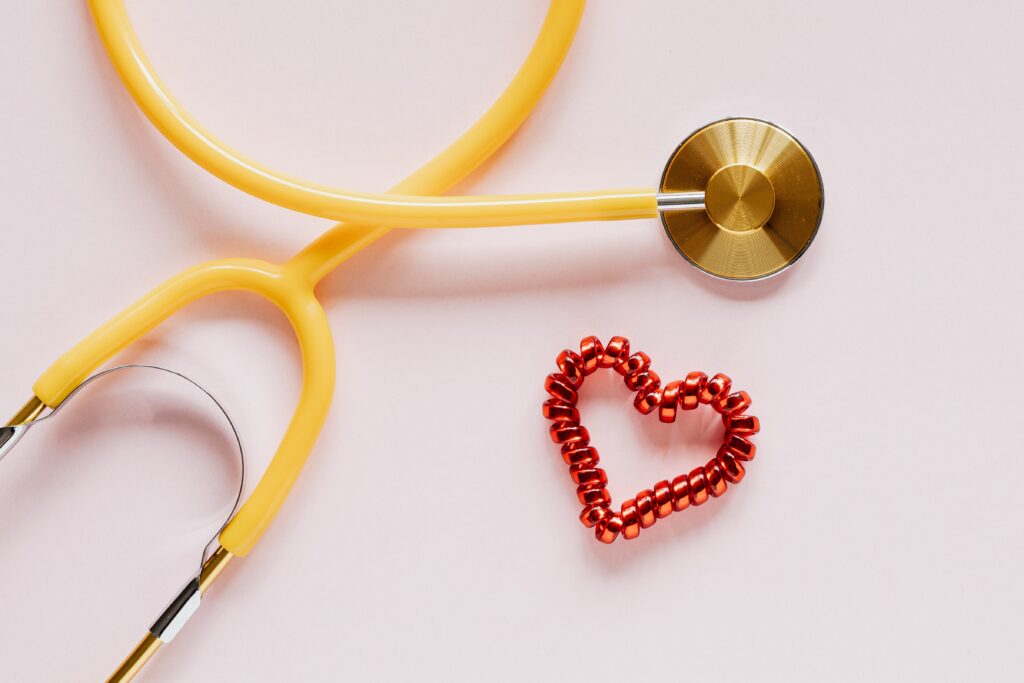Happy National Orgasm Day! Here’s one for the girls
When I told my friend Joanne that I couldn’t come, I wasn’t talking about not showing up for an event.
“I can’t climax,” I explained. “I get close, but I can’t seem to go over the edge. Something is wrong.”
“Are you taking antidepressants?” she asked. I was well aware that some antidepressants could cause loss of libido, but I hadn’t taken antidepressants in years. “Then, it is probably stress,” she assured me. “You’ve been busy lately. Once things slow down, I’m sure you will get your groove back.”
Only I didn’t. Two months later, I was still frustrated.
When it comes (or doesn’t come) to libido, there is a gender gap. According to the Mayo Clinic, when men cannot become aroused, it is called “Erectile Dysfunction.” When women cannot become aroused, it is called “Sexual Interest/Arousal Disorder.” Notice how the medical world places the cause of the problem in different areas. When males cannot perform, the cause is associated with the erection. The problem is assumed to be physical. When females cannot perform, the cause is associated with her interest. The problem is assumed to be something within her control, something emotional. This disparity impacts treatment. Men are encouraged to see doctors for evaluations. Where we live, there are numerous advertisements for erectile dysfunction. Billboards proudly offer a variety of treatments. However, for women, the choices seem limited. Women are told that the problem is in their minds and they just need to “think their way to an orgasm.” Sadly, many doctors have bought into this gender bias and, as a result, their patients have, as well. However, there are options.

IT’S NOT YOU, IT’S ME
“How about I make us some tea and we talk this over?” Miriam asked. After two months of difficulty climaxing, I was beyond frustrated, and I’m fairly certain that my partner Miriam was physically exhausted. I’d done my due diligence with internet research. Most information aimed at women suggested taking time to get into the mood, relaxing, and keeping performance anxiety in check, as though climaxing were a sport and women just had a case of the yips. If I read one more piece suggesting a warm bath, candles, yoga or meditation, I was going to throw my laptop through the window.
In bed, we curled our hands around our mugs and our bodies around one another. “Tell me what is going on,” she prompted. For some reason, I’d found myself embarrassed to talk about the problem. Everything I’d read had pointed to the problem being emotional, and I was starting to believe it. I felt like I was letting me and my partner down.
“It’s not you. You are amazing. It’s me. It’s my body. I want our intimacy, I enjoy it, but I can’t seem to climax. I’d hoped it would resolve on its own, but something is going on. I don’t know what to do about it. Do I see a doctor? I don’t even know which doctor to see for this issue. Do I start with my general practitioner? A psychologist? A gynecologist?”
We decided a visit to the gynecologist would be the best first step. Unfortunately, it did not go well.
DREADFUL DOCTORS & DHEA
The first gynecologist I saw was male and in his mid-fifties. He took blood, did a physical exam, and then shrugged as he told me that loss of libido is normal for women in their mid-to-late forties. I remember lying with my feet in the stirrups thinking that age was stealing my eyesight, my energy, and now it was going after my orgasms.
“But what causes loss of libido and an inability to climax? Is it hormonal? I’m not a doctor, but I feel like it might be hormonal. Can we look into that?” As a bisexual woman who was often encouraged in her youth to take hormone-manipulating birth control pills in an effort to not get pregnant, I was shocked that there were not hormone-related studies addressing issues for women beyond their child-bearing years. Though it had been a long time, Miriam and I both recall surges in libido in the second trimester of our pregnancies, so it seemed likely that hormones play a role in sexual desire and fulfillment. There were treatments for men, so why weren’t there treatments available for women?
He shrugged again. “You could try taking DHEA. Some of my patients have said that helps.”
A gynecologist who tells me that I am just getting old and recommends something without doing any professional research is not the doctor for me. I immediately made an appointment with my former gynecologist, but I also started reading about DHEA. Dehydroepiandrosterone (DHEA) is sold over the counter and marketed as a dietary supplement. It can be purchased at your local grocery store, pharmacy, or vitamin shop. The Mayo Clinic reports that it is a synthetic version of a hormone that our bodies make naturally, and it assists in the production of testosterone and estrogen. DHEA is taken for aging-related issues, depression, osteoporosis, vaginal atrophy, muscle strength, and to increase physical performance. However, the Mayo Clinic’s conclusions about DHEA are mixed. While they say there are no studies proving that DHEA is effective, they report that the National College Association of Athletes has banned its use. They also do not recommend that people take it.
I took it.
What can I say? My orgasms were on the line, and I was not ready to give up that part of my life.
Truth be told, after two or three weeks of taking DHEA, my libido improved. “That supplement seems to be working,” Miriam panted one afternoon after I’d dragged her to bed. “But is it doing anything negative to your body?”
“That is a good question, and I don’t know.” The Mayo Clinic reports that DHEA has a steroid effect, which may increase the risk of certain cancers. The research is inconclusive. The bottomline for readers is this: DHEA was effective for me, but take DHEA at your own risk.

GOOD DOCTORS & HORMONE THERAPY
The next gynecologist I saw was female and in her mid-to-late forties. She nodded when I described how I would get to the point of climaxing, and then it would fade. She had experienced something similar, and she was now taking hormone replacements in the form of testosterone. This intrigued me. As previously stated, Miriam and I recalled increased libido when our hormones had peaked during pregnancy. Hormone replacement seemed like an obvious solution.
The gynecologist explained that many men who experience erectile dysfunction have age-related dips in testosterone. When they increase their testosterone levels, they often see a positive result. Obviously, this needs to be done with the help of a doctor who monitors testosterone levels. Too much or too little testosterone is not good for the patient in many ways, including sexually.
She explained that women also have dips in testosterone as they age. Increasing testosterone levels can improve libido for women, as well. In fact, many things can improve with testosterone therapy, including less fatigue, better sleep, fewer hot flashes, and feeling more alert. Testosterone can be delivered in a variety of ways, including pills, injections, creams, gels, pellets, etc. After asking me about my sexual history and sexual preferences, which I appreciated, the gynecologist thought testosterone pellets would be my best options. The pellet delivers a steady dose of testosterone, while the other options offered more variability in dosage delivery. Further, while I might want more testosterone in my system, my partner might not, which made creams and gels a less desirable option.
She explained that pellets require a short, in-office procedure. The patient gets a shot of a local anesthetic, a small incision is made in the gluteal muscle, and the pellet is inserted via a cannula into the muscle. No stitches are necessary. Instead, steri-strip tape is used to keep the small incision closed. A waterproof bandage is placed over the site, and the patient can’t get the area wet for twenty-four hours. While the patient can walk and sit, glute exercises and exercise involving jumping are discouraged for three days. Follow up bloodwork to check hormone levels is necessary. Note: Testosterone therapy, including pellets, is currently only approved for men. That means the pellets would be considered off-label use and not covered by insurance. Every three months, I would have to pay about $350 for the pellet, procedure, and bloodwork. I would also have to pay $60 for a supplement to keep too much of the testosterone from converting to estrogen. Did I want to do it?
I did it.
What can I say? My orgasms were on the line.
I was warned about the many side effects of beginning testosterone therapy. These include increased facial hair, acne, changes in mood, lower pitched voice, increased size of the clitoris, among other things.
Over the last year, as we have adjusted the dosage of pellets, I experienced side effects. All of them.
And they weren’t that bad. The facial hair meant that I needed to tweeze a little, the acne was regulated with medication, my moodiness while I got used to an increase in testosterone meant that I snapped at my contractor who was taking too long to finish a bathroom remodel (and, frankly, he deserved it), my lowered voice sounds a little sexier, and I have a little more clitoris to love. Increasing my libido took a little longer than I expected. I noticed some changes within six weeks, but I didn’t really feel a change until the doctor increased my dosage three months later. Now, I sleep better, have more energy, and (insert the sound of angels singing) I can climax.
The bottomline for readers is this: testosterone therapy works for some people, and I am one of them. It might work for you, too. Talk to your doctor, weigh the pros and cons, and make your decisions.
Happy orgasm!







Cis men as gynecologists… smh.
Thank you for sharing your journey. We may be older, but now we are wiser!